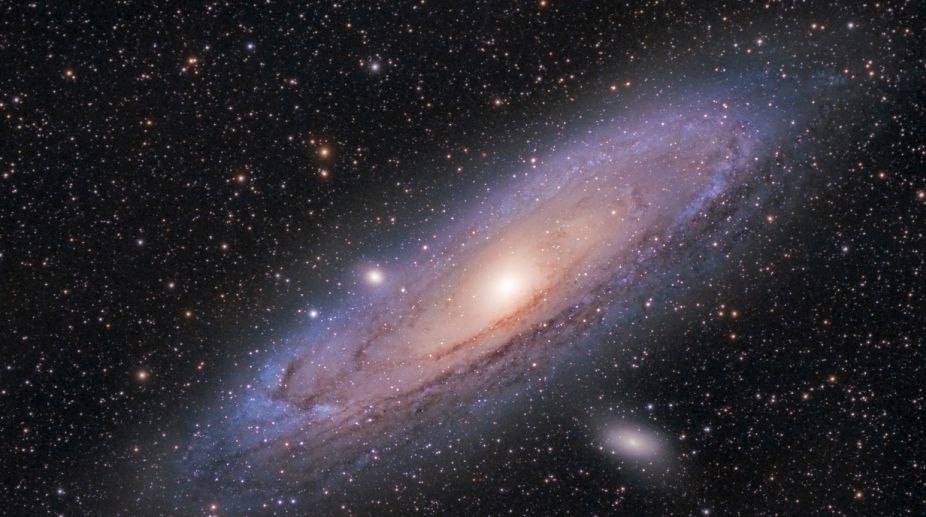Two largest satellite galaxies of the Milky Way — the enigmatic Magellanic Clouds — appear to be connected by a bridge stretching across 43,000 light years, a study says.
The discovery, reported in the journal Monthly Notices of the Royal Astronomical Society (MNRAS), is based on the Galactic stellar census being conducted by the European Space Observatory, Gaia.
Advertisement
"Stellar streams around the Clouds were predicted but never observed," said one of the researchers Vasily Belokurov from University of Cambridge.
The research team concentrated on the area around the Magellanic Clouds and used the Gaia data to pick out pulsating stars of a particular type — the so-called RR Lyrae, very old and chemically un-evolved.
As these stars have been around since the earliest days of the Clouds' existence and they offer an insight into the pair's history.
The Large and Small Magellanic Clouds (LMC and SMC respectively) are the brightest, and largest, examples of dwarf satellite galaxies around the Milky Way.
Known to humanity since the dawn of history (and to Europeans since their first voyages to the Southern hemisphere) the Magellanic Clouds have remained an enigma to date.
Studying the Large and Small Magellanic Clouds (LMC and SMC respectively) has always been difficult as they sprawl out over a large area. But with Gaia's all-sky view, this has become a much easier task.
"Having marked the locations of the Gaia RR Lyrae on the sky, we were surprised to see a narrow bridge-like structure connecting the two clouds. We believe that at least in part this 'bridge' is composed of stars stripped from the Small Cloud by the Large. The rest may actually be the LMC stars pulled from it by the Milky Way," Belokurov noted.
The researchers believe the RR Lyrae bridge will help to clarify the history of the interaction between the clouds and our galaxy.











